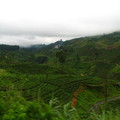Video - Pu-erh
„
the creation of Puerh Paste from within Yunan Province, China. basically, it's similar to making hash or hemp oil. they brew the tea, then continue to sift it through smaller and smaller sized hole mesh bags until the final mixture is a paste. seems to me if there's a direct way to go tea infusion, this might be it.
“
Video Tags: Pu-erh, China, Tea production
„ “

Video Tags: Pu-erh, China, Bulang, Tea production, Gushu
„“

Video Tags: Pu-erh, Sheng - Raw Puerh, Shu - Ripe Puerh, Tea infusion
„“

Video Tags: China, Pu-erh, Tea production, Yunnan
„“

Video Tags: China, Pu-erh, Tea production, Yunnan
„“

„“

„“

„“

„“

Video Tags: Pu-erh, Yunnan, Tea production, China, Maocha
„“

„“

Teas
Sikkim Temi FTGFOP-1 Second Flush 2013
 2 reviews
2 reviewsExcellent tea from a single garden in Sikkim, spread around the village of Temi, in the beautiful...
Shu 7581 - 2002
 1 review
1 review„tailor-made” private production “Zhong Cha Gong Si” This tea was stored for the whole time in...
2014 White2Tea New Amerykah 2
 1 review
1 reviewAn old arbor Menghai blend. Thick body, lingering kuwei [pleasant bitterness], and plenty of oomph. This...
Theme
Tea by region
We will help you with tea selection.
Do you like quality loose tea?
We will help you to find the right one for you. Be inspired by tea ratings of other tea lovers. Rating stars could help you.


Review your cup of tea.
Review the tea you are drinking and help other tea lovers to find the right cup of tea.



Quotes
„Astringency
Astringency invariably accompanies bitterness. In some Puer the astringency is more pronounced, the bitterness slightly weaker. A benefit of astringency is that it can help promote salivation. If this is felt on the underside of the the tongue it is a further mark of good tea.“



 Shops
Shops Share on Facebook
Share on Facebook









